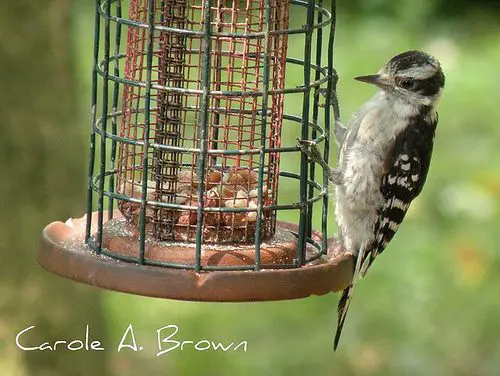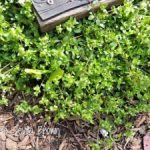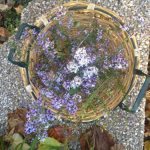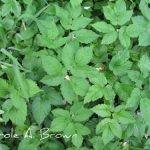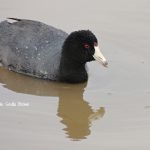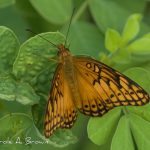You can help scientists track fluctuations in bird populations right from your kitchen table or any other place with a view of your bird feeders. Project Feeder Watch, a long-running study by Cornell Lab of Ornithology and Bird Studies Canada, kicked off this weekend and will run through mid April.
This is a very easy way to help scientists by helping to gather data right from your backyard. You simply count how many birds of each species are at your feeders at one time. You can do it in as little as 15 minutes each weekend (or as long as you want) and you submit your counts to their online database.
Thousands of people around the country participate in this program every year, and scientists can use this data to track bird abundance and distribution and because this program has been running for so many years, scientists have been able to determine which species are declining and what can be done to stop those declines.
If you have kids this is a wonderful way to engage them in scientific inquiry and teach them how to identify different species of birds.
It’s a fun and easy way for people to get involved in bird watching and help scientists learn more about birds and their habitats.
Here’s how it works: Participants sign up and receive instructions on how to set up a bird feeder in their yard or community. They then count the birds that visit their feeder during designated count periods throughout the winter. Participants record their observations and submit them to the Cornell Lab, where scientists use the data to track the distribution and abundance of different bird species.
The great thing about Project Feeder Watch is that anyone can participate, regardless of their birding skills. Whether you’re a seasoned birder or a complete beginner, this program is a great way to get involved in bird watching and help contribute to our understanding of birds.
In addition to being fun and educational, Project Feeder Watch is also an important way to gather data on bird populations. By tracking changes in the distribution and abundance of different species, scientists can get a better idea of the health of bird populations and the impact of environmental factors like climate change.
More From Ecosystem Gardening:
Submit your review | |

